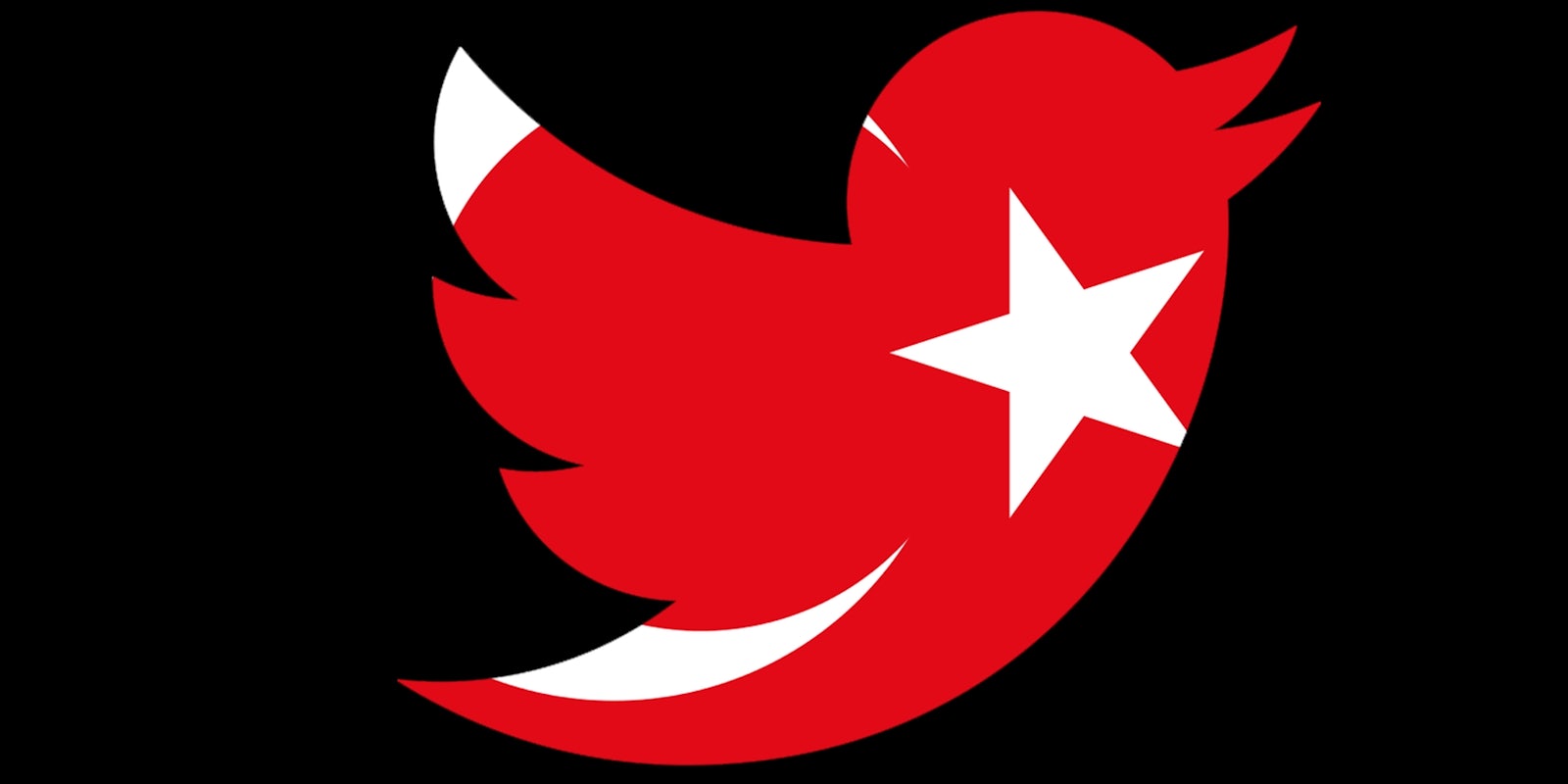Twitter is currently banned in Turkey.
Turkish Prime Minister Tayyip Erdoğan stated his intentions to eradicate the microblogging platform, which is an important communication tool for protesters, just 12 hours before he went ahead and banned it. His remarks certainly weren’t unprecedented; in 2013, he called social media “the worst menace to society” as the Occupy Gezi protests swelled. Now, with local elections coming up on March 30 in Istanbul, the government has decided to officially crack down on Twitter.
This isn’t the first time the Turkish government has threatened to crack down on social media, and Twitter in particular. And many protestors suspect the government has throttled social media use in the past. But this is the first time the Turkish government has taken such drastic measures. And it comes on the heels of a new wave of protests in Istanbul’s Taksim Square at the end of February, following the passing of a controversial Internet law (which made this kind of ban legal).
Twitter is an integral organization tool for the protestors, and this extreme step to dismantle civil disobedience and dissent is likely to increase hostility towards the government. Turkish journalist Erdem Arda Gunes explained how the ban was implemented to the Daily Dot. “The ban started after midnight and got into effect gradually depending which internet providers they used, but it’s a court order (actually four different courts) which means every provider, including GSM companies, are obliged to implement this ban,” he told us via email.
The Daily Dot contacted Twitter to find out the social platform’s official response. A spokesperson directed us to tweets sent out by the policy team trying to help Turkish users stay on:
Turkish users: you can send Tweets using SMS. Avea and Vodafone text START to 2444. Turkcell text START to 2555.
— Policy (@policy) March 20, 2014
Of course, if Twitter is blocked, many Turkish users won’t be able to read Twitter’s message. Prominent Turkish dissidents on Twitter like @fuatavni, who has over 435,000 followers, have already set up workarounds for the ban, so this doesn’t mean the entire country is offline; many will circumvent the rule with VPNs, SMS, and proxies.
That doesn’t mean they’ll take it lying down.
“I followed the Occupy Gezi events as a reporter… And after all these things it will not surprise me if that unrest repeats,” Gunes told us.
Illustration by Jason Reed


